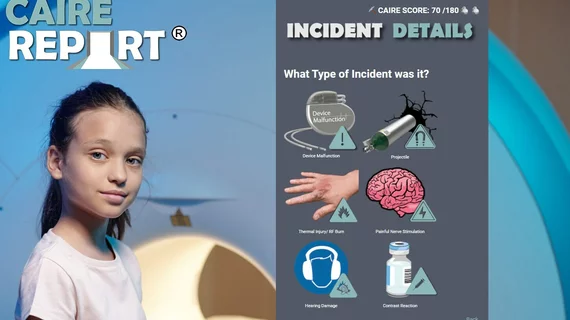Company launches world's first online portal for MRI safety reporting
CAIRE Reporting, a data analysis company focused on improving safety in radiology settings, has unveiled the world's first web-based portal dedicated to adverse incident reporting for MRI scanners. The tool aims to log all accidents and any associated remedies, bringing as much information as possible to a central location.
Anyone can make confidential submissions about adverse incidents through the portal, enabling aggregation and analysis more easily, so safety improvements can be implemented, according to a statement from CAIRE.
"By sharing information on preventable accidents and making that information—and lessons learned—available to our professional colleagues, we will continue to improve safety for patients and staff," co-developer of the portal Tobias Gilk, board member of the American Board of Magnetic Resonance Safety, said in the statement. “Proper measurement of the types and frequency of MRI accidents is essential to key decision-making and effective protocol creation," he added.
The CAIRE-MRI Portal focuses on coordinated data collection and actionable recommendations. According to CAIRE, a panel of safety-certified professionals incorporates peer-reviewed principles in the analysis of reported data, generating practical recommendations for corrective actions and operational improvements.
CAIRE said data correlation and analysis will happen on a global scale.
Established earlier this year, CAIRE was founded with the stated objective of enhancing accident information collection and providing corrective action recommendations. Utilizing its proprietary Comprehensive Adverse Incident Reporting and Evaluation (CAIRE) data analysis methodology, the company said it is able to uniquely tailor data acquisition and analysis to MRIs.

